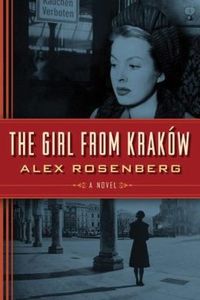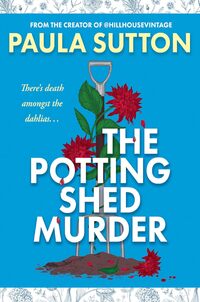Alex Rosenberg joins Fresh Fiction to talk about his novel THE GIRL FROM
KRAKOW.
Jen: WWII is an event that has been written about extensively. What compelled you
to write THE GIRL
FROM KRAKOW and why did you have to tell this story?
Alex: For obvious reasons that war is a touchstone for many lives, mine in
particular. The story in part traces the real lives of six people I knew growing up, and
whose experiences shaped my take on things from an early age. I helped tell the real
story of one of these people in a memoir published about 25 years ago. Then, after
thinking about what wartime really meant to people who experienced it, and what the war
as a historical event meant to me, I had to write my version, less constrained by the
actual trajectories of the real people but faithful to their fates as I saw them.
Jen: The characters in THE GIRL FROM KRAKOW change their names for various reasons, for
protection, to hide who they are, or to become someone new. With each change in name,
there seems to be a change in identity. What do you think is so defining about a name, by
saying to the world “I am ___”? And do you feel people can change identity by claiming a
new name?
Alex: The two main characters of THE GIRL FROM KRAKOW forge new identities when they change
their names, one by choice, the other by necessity. However identities are never fixed
and each of our selves is changing all the time. A new name can sometimes be the occasion
for a radical break in personal identity. But in my story, the male character doesn’t
really change at all. He’s too satisfied with the self he started with, while the true
heroine of the story tries hard to make herself a different person to survive because she
has to. But she can’t quite do it and it gets her into trouble repeatedly.
Jen: Darwin’s Theory of Evolution figures heavily into the story. You do a
fabulous job of explaining the theory but in also explaining why and how the Nazis could
apply this theory incorrectly for their own purposes. What are the dangers in applying
scientific theory to philosophical questions?
Alex: The real danger is applying science or philosophy to literature. It’s very
hard to do so without boring readers. The parts of my story in which characters argue
about these matters were the most difficult for me to write. Thomas Mann didn’t succeed
in THE MAGIC MOUTAIN. Why should I do better? Anyway, I suspect lots of readers
may even skip those conversations. That’s OK.
As for your question, I don’t think there are dangers turning science into philosophy.
After all philosophy addresses the questions science can’t answer yet. So, as scientific
knowledge increases, it has to answer questions once the preserve of philosophy.
The real danger is to turn good science into bad philosophy, or even worse dangerous
ideology. That’s what Nazis did with Darwin, and a small part of my aim was to explain
why, but without breaking up the tension of my narrative. I hope in doing so I didn’t
distract readers from the mystery and the adventure.
Jen: Which writers have inspired you the most in your writing and what one piece
of advice would you give to new writers?
Alex: I think the most important writer of the 20th century was Alexander
Solzhenitsyn. His novel, IN THE FIRST CIRCLE was worthy of the Nobel Prize and his history, THE GULAG ARCHIPELAGO
did as much as any other thing to bring down an empire. I was less happy with his later
thoughts and works. But he inspired me with the power of literature to move people. Without
it I might not have been motivated to try to move people in my own way by writing THE GIRL FROM KRAKOW.
A quite different writer who ‘inspired’ me was, as many readers and some critics have
recognized, Alan
Furst. He’s the only contemporary novelist whose books I have enjoyed so much I’ve reread
them. My conscious style however owes more to Ian McEwan, whose sparing use of metaphors I try to emulate.
Advice to new writers: rewrite.
Jen: What can readers look forward to from you in the future?
Alex: I am finishing a mystery. It's set in Oxford in the late 1950s, with flashbacks
to New York in the 30s and the war. The story follows an American history professor who wins
the Pulitzer Prize, is black listed and moves to England, where he is framed for murder. Two
women, his lover and his solicitor, set about to free him from prison by discovering who
framed him and why.
Jen: Sounds interesting and that is such a fascinating time period! Thank you for
joining us.
When he's not writing historical novels, Alex Rosenberg is a professor of philosophy at Duke
University.
Alex's first novel, "The Girl From Krakow," is a thriller that explores how a young woman and
her lover navigate the dangerous thirties, the firestorm of war in Europe, and how they make
sense of their survival.
He is working on his second novel, a murder mystery set in Oxford and London in the 1950s
that takes the reader back to before, during and after the second world war in New York.
Before he became a novelist Alex wrote a large number of books about the philosophy of
science, especially about economics and biology. These books were mainly addressed to other
academics. But in 2011 Alex published a book that explores the answers that science gives to
the big questions of philosophy that most atheists (and all thinking people) ask themselves--
questions about the nature of reality, the meaning of life, moral values, free will, the
relationship of the mind to the brain, and our human future. That book, "The Atheist's Guide
to Reality," was widely reviewed and was quite controversial.

It’s 1935. Rita Feuerstahl comes to the university in Krakow intent on enjoying her
freedom. But life has other things in store—marriage, a love affair, a child, all in the
shadows of the oncoming war. When the war arrives, Rita is armed with a secret so enormous
that it could cost the Allies everything, even as it gives her the will to live. She must
find a way both to keep her secret and to survive amid the chaos of Europe at war. Living by
her wits among the Germans as their conquests turn to defeat, she seeks a way to prevent the
inevitable doom of Nazism from making her one of its last victims. Can her passion and
resolve outlast the most powerful evil that Europe has ever seen?
In an epic saga that spans from Paris in the ’30s and Spain’s Civil War to Moscow, Warsaw,
and the heart of Nazi Germany, The Girl from Krakow follows one woman’s battle for survival
as entire nations are torn apart, never to be the same.
1 comment posted.


 © 2003-2025 off-the-edge.net
all rights reserved Privacy Policy
© 2003-2025 off-the-edge.net
all rights reserved Privacy Policy